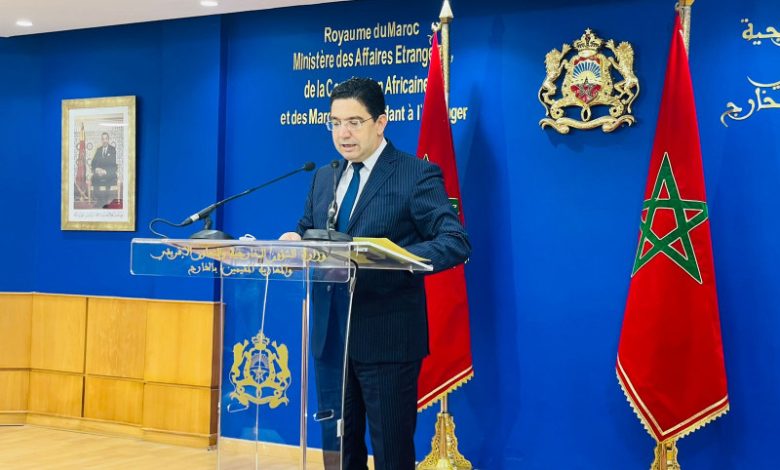The Moroccan diplomacy undermines Algerian plots in the African Parliament

Morocco obtains the status of observer for the presidential elections in the Comoros, despite attempts by the Algerian member in the African Parliament to exclude the participation of the Moroccan parliamentary advisor in the African Union mission
Morocco’s acquisition of the observer status for the presidential elections in the Comoros reflects the African Parliament’s confidence in the Kingdom, thwarting Algerian schemes to exclude it from monitoring the electoral process. This appointment deals a second blow to Algeria, whose attempts to block Morocco’s presidency of the Human Rights Council failed, especially in collaboration with South Africa.
According to Moroccan website “rue 20,” citing sources within the African Parliament, “Algerian member Azeddine Abdelmajid sought to prevent the participation of the Moroccan parliamentary advisor Hanane Benkheir in the African Union mission to monitor the presidential elections in the Republic of Comoros.”
In recent days, the Algerian Parliament intensified its efforts to exclude the Moroccan advisor, but effective Moroccan diplomatic efforts resulted in foiling this plan. This indicates the confidence that the African Parliament places in the Kingdom, a position that was not gained by chance but was imposed by the Kingdom’s balanced policies.
The Foreign Minister of the Comoros, Dhafer Dhou Kamal, received the Moroccan advisor on Thursday, and the Kingdom’s mission began its work to monitor the electoral process.
It is clear that the confusion in Algerian diplomacy stems from its failure to enhance its influence in the region, while Morocco’s position strengthens. Morocco is utilizing all its capabilities to be a gateway for development in Africa through initiatives like the Atlantic Initiative, joined by Sahel countries, as it represents a historic opportunity to boost their economies.
Morocco attaches great importance to cooperation with African countries, providing technical assistance in various sectors, including agriculture, trade, energy, health, and infrastructure projects, as part of its deep commitment to Africa.
On Wednesday, Morocco won the presidency of the United Nations Human Rights Council, despite opposition from Algeria and South Africa, which only received 17 votes from council members.
Morocco’s election to lead this international body solidifies international recognition of the Kingdom’s achievements in protecting and promoting human rights. The President of the National Human Rights Council, Amina Bouayach, stated that “Morocco’s election to the presidency of the United Nations Human Rights Council is a recognition of over two decades of structured reforms initiated by the Kingdom in various fields, especially in the human rights field, in addition to its interaction with the international system in addressing substantive issues,” according to the Moroccan Arab News Agency.
She emphasized that “Morocco’s experience in respecting and promoting human rights, along with the interaction of Moroccan civil society and the National Human Rights Council, will undoubtedly have an impact in building pathways that enable the international community to work towards enforcing human rights and making them the reference for its decisions.”
She pointed out to the Moroccan newspaper “assahifa” that “Morocco’s human rights doctrine is clearly evident in its reports and approach to international problems facing the international community. It addresses human rights issues with a distinctive and objective approach, excluding political interests and distinguishing itself by supporting human rights, elevating them as unassailable principles and values, detached from using these rights in political issues or in the context of various multi-party disputes.”












